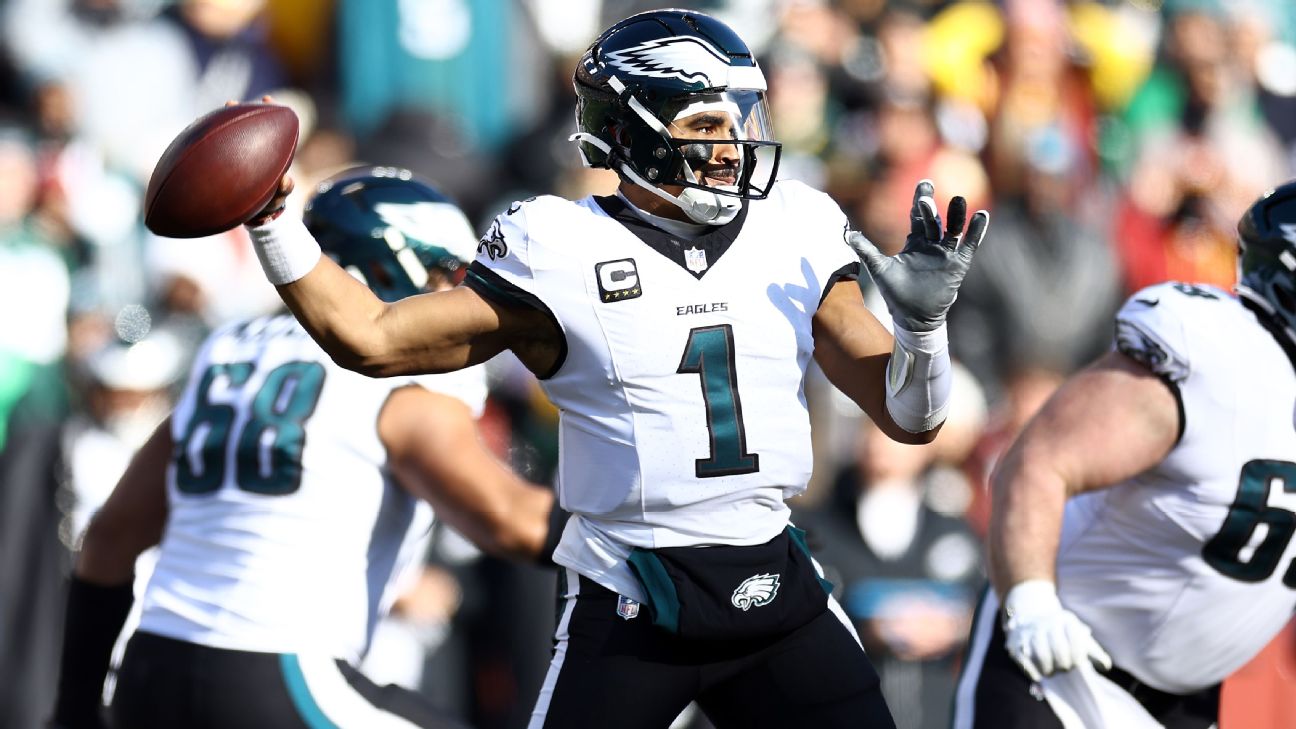Eagles safety Malcolm Jenkins to continue anthem demonstration

Philadelphia Eagles safety Malcolm Jenkinsstood at the 43-yard line and raised a fist over his head during the national anthem prior to Thursday's preseason opener atGreen Bay.
Earlier in the day, Jenkins told ESPN he plans on continuing his demonstration through the 2017 season.
"Last season, I raised my fist as a sign of solidarity to support people, especially people of color, who were and are still unjustly losing their lives at the hands of officers with little to no consequence. After spending time with police officers on ride-alongs, meeting with politicians on the state and federal level and grass roots organizations fighting for human rights, it's clear that our criminal justice system is still crippling communities of color through mass incarceration," Jenkins said in a statement.
"With the new call for a war on crime and drugs, the disproportionate oppression of poor communities and communities of color will continue unless legislative efforts and community engagement are made a priority. I've seen signs of life with regards to bipartisan support for criminal justice reform, but the support does not reflect the necessary urgency for real reform. This must be made a priority.
"As the blowback against those who stand up for what is right thickens, I feel it is necessary to push forward with a relentless determination. I want to send a message that we will not easily be moved or deterred from fighting for justice. There are many players across the league who have joined me in working toward new legislation and reestablishing trust and opportunities in our communities, and you can expect to see much more of that. I want to thank the fans across the country who have supported me in this effort to fight for equality and justice. I want to thank those that have dedicated their lives to this fight, as I know that it is not easy. And I want to challenge those who stay silent to be courageous and use your platforms to become part of the solution. God Bless."
Jenkins raised a fist above his head for all but one game in 2016 -- the exception being the regular-season opener against the Cleveland Browns on Sept. 11 out of respect for those who served and died on that day in 2001. He said the plan is to demonstrate in the same fashion this season.
It is unclear whether any of Jenkins' teammates will join him. Last season, defensive ends Steven Means and Marcus Smith raised a fist alongside him as a show of support Week 2 at the Chicago Bears. Cornerback Ron Brooks protested for multiple games before being sidelined with a ruptured quad tendon.
The pregame demonstrations were kick-started by quarterback Colin Kaepernick, who began sitting during the national anthem in the 2016 preseason before taking a knee for the final preseason contest and 16 regular-season games.
Sources told ESPN NFL Insider Adam Schefter in March that Kaepernick would stand during the national anthem this upcoming season. He has not been signed by another team since opting out of his contract with the San Francisco 49ers months ago, however.
Jenkins is one of several players across the league who have spoken out on the matter. He recently called some teams "cowards" for their reluctance to sign Kaepernick over concerns about public blowback. This followed a report from ESPN's Dianna Russini stating that support in theBaltimore Ravens' front office to sign Kaepernick was met with resistance by owner Steve Bisciotti, who reportedly discussed the possibility of adding him with current and former players, as well as with fans and sponsors.
"This is just some other teams being, quite honestly, cowards, to say that they're afraid of backlash to sign someone to make their team better, when fans' input has never been in the equation when it comes to signing people in the past," Jenkins told delawareonline.com.
"It's certain owners' way of making an example out of [Kaepernick] to discourage anybody else from doing what he did."
Jenkins was skeptical of Kaepernick's chosen form of protest at first. He believed that the resulting focus would be on the demonstration itself rather than the cause for which he was demonstrating. Though his instincts proved correct to a large degree, he came to view it as an opportunity to show solidarity on the issue of social injustice.
"Now that you look back at the season and what's transpired since then, I think Colin Kaepernick's decision to kneel or take a seat or to protest the national anthem was genius and worked better than I think he even probably assumed at first," Jenkins told ESPN in June. "Because here we are a year later and it's still a topic of conversation, and it sparked a conversation that's been long-lasting. And since then, guys have really moved into action and have been doing a lot in the community."
Jenkins has developed into one of the leaders of the off-the-field movement. He helps coordinate the efforts of a growing network of NFL players looking to get involved in social activism, has made multiple trips to Capitol Hill to speak with politicians about mass incarceration and police brutality, and has met local law enforcement and participated in a ride-along with Philadelphia police.
The Malcolm Jenkins Foundation is dedicated to serving underprivileged youth in Philadelphia, Louisiana, New Jersey and Ohio. Earlier this year, the NFL Players Association named him the winner of the Byron "Whizzer" White for his community outreach efforts.
Jenkins weighed the decision of whether to continue his protest for much of the offseason. Earlier this week, he told reporters that he still had not made up his mind. He does not want to be a distraction to the team and wants the focus to be on the off-field work that is being done, a source said, but ultimately decided that public demonstration was still key in moving their efforts forward.






